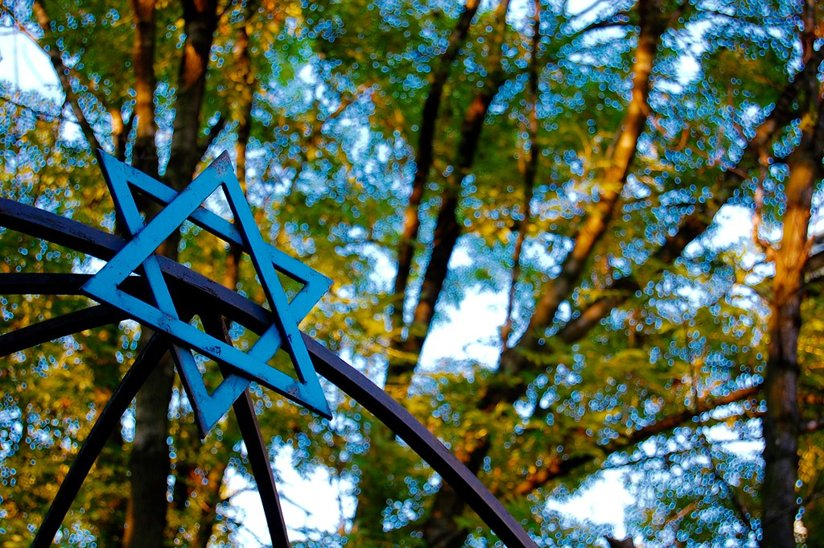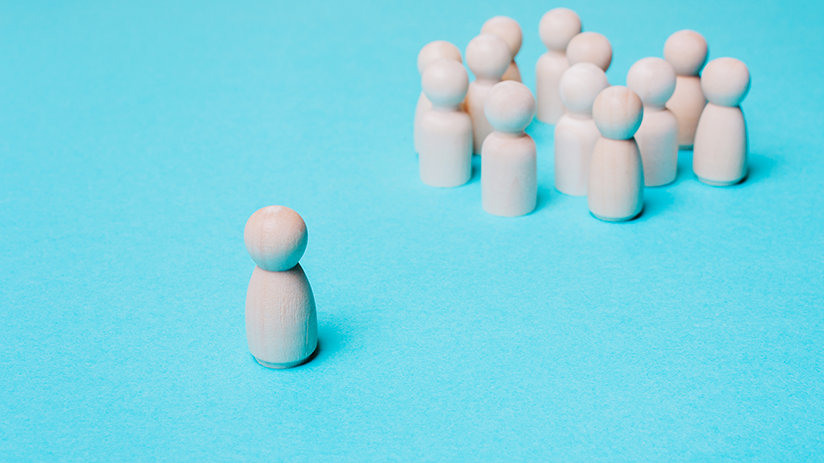
-
HOME
-
WHAT IS STANDOur Mission Our Values Our Help Contact
-
WHAT WE FIGHT FORReligious Freedom Religious Literacy Equality & Human Rights Inclusion & Respect Free Speech Responsible Journalism Corporate Accountability
-
RESOURCESExpert Studies Landmark Decisions White Papers FAQs David Miscavige Religious Freedom Resource Center Freedom of Religion & Human Rights Topic Index Priest-Penitent Privilege Islamophobia
-
HATE MONITORBiased Media Propagandists Hatemongers False Experts Hate Monitor Blog
-
NEWSROOMNews Media Watch Videos Blog
-
TAKE ACTIONCombat Hate & Discrimination Champion Freedom of Religion Demand Accountability
The Old Jew: A Story About Wisdom
Contrary to the claims of those who rail against religion, the vast majority of religious doctrine consists of accumulated wisdom to be passed on to succeeding generations—from the fables and parables of tribal peoples to the tomes of written works of the great religions of the world, and I offer this true story as a real-life example.

It was the first year of my business. My wife was pregnant with our first daughter. I was called out to do a repair and the customers were an old Jewish couple in Cheviot Hills. The old woman was warm and welcoming when she opened the door, as though I was one of her grandkids. The old man wore a beret and had a German accent. He was the right age so had somehow escaped the Holocaust with his life intact. He had a direct gaze, twinkling eyes and the corners of his mouth were permanently turned up in good humor. The old man showed me the job, then we both settled into a good-natured haggle over the price.
I came back to do the job that week. When I’d finished, the old man and I looked over my work. I explained. He inspected and approved. Then before he handed me the check, he turned to me and said “I’m going to tell you a story.”
During the years of raising my children, when they were testing me, the old man's advice always guided my response. “Will I laugh about this later?”
“When I first moved into this house, my daughter was four years old. My wife and I began fixing the house and painting all the rooms. We decided to paint the dining room pink with red trim. One morning, we woke up and found my daughter with a paint roller in her hand, and four feet up the pink walls, all around the room, was bright red paint. She was very proud and smiling.”
“‘Look, Mommy and Daddy! I’m helping you paint the room!”

“My wife was ready to kill her, but I stopped her. I told her, ‘Honey, a year from now we will laugh about this.’”
He turned to me, looked straight into my eyes and said, “You remember that.” Then he handed me the check.
I had not told the old man that I was expecting my first child, but somehow he knew.
And I never forgot.
During the years of raising my children, when they were testing me, the old man’s advice always guided my response. “Will I laugh about this later?” These new little lives reaching into the world around them with sincere hearts, feeling, finding out, trying to help... will I laugh later?
The question reminds me to stop and think first before I judge and condemn another—to examine the whole picture and realize what is important, what is not, what is grave and what is trifling. It reminds me of the transient nature of all things, good and bad, great and small. Most of all, it reminds me that I possess humanity and compassion as a power—that I may use that power for others and for life.
Within that single piece of wisdom is the tradition of the Jewish people and their religion, for much of it is the accumulated wisdom of ages. It celebrates, embraces and nurtures our humanity. It recognizes the precious gift of a new life in the world. It’s also the story of wisdom surviving the hate, horror and death visited upon the Jewish people over and over throughout their history, yet they rise again, and make a new life better somewhere. It’s what wisdom does. A person, a people, cannot have too much wisdom.
This is a people and a religion which have survived everything that everyone from everywhere has thrown at them. They have come out the end of each historic trial, not bitter, but smarter and wiser, embracing life and its humor all the harder.
Who knows who passed that piece of wisdom down to the old man, which he passed to his wife and which he passed to me? But whenever I meet a new parent, I tell them the old man’s story.
What if that lesson had been passed on to my adopted son’s birth father, who beat him with electrical chords? Or the fathers of my parents’ generation, and their fathers? To the fathers of Hitler and Stalin? To the cop on the street? To a child psychologist, so ready with his “disorders” and drugs? To judges and legislators? What would the world be like?
Better I suspect.
The Jewish people have a tradition of—and reverence for—learning and wisdom accumulated from the trials and errors of men and women for thousands of years. It’s a tradition which passes on accumulated wisdom and seeks to discover more.

I live in Los Angeles. I meet many Jewish people in my line of work. I’m usually greeted with the same warmth as that of the old man and his wife. I’ve become friends with many and I don’t want to think about how spare and stark my life would be without them. Most are bright, incisive, curious, expressive and humorous.
This is a people and a religion which have survived everything that everyone from everywhere has thrown at them. They have come out the end of each historic trial, not bitter, but smarter and wiser, embracing life and its humor all the harder. Their reverence for wisdom, learning, excellence, art and science, family and life, has made every culture it touched better and more complete, more prosperous, more stable and sustainable.
It’s a fact that may not fit into a bigot’s narrative, but fits nicely into the truth.
There will always be that element—that diseased, degraded personality type that has a visceral hatred for anyone who displays greater intelligence, knowledge, performance, creativity and drive than they do. When that element takes over in any society, Jews naturally become one of the targets for their hatred. But it is the insanity of that type of personality which is the problem, not the target of the insanity. It is their insanity which is always, ultimately, their undoing. For after they are gone, the Jewish people and the rest of decent humanity will be here, with warm hearts, good humor and maybe a laugh to put things back together.









